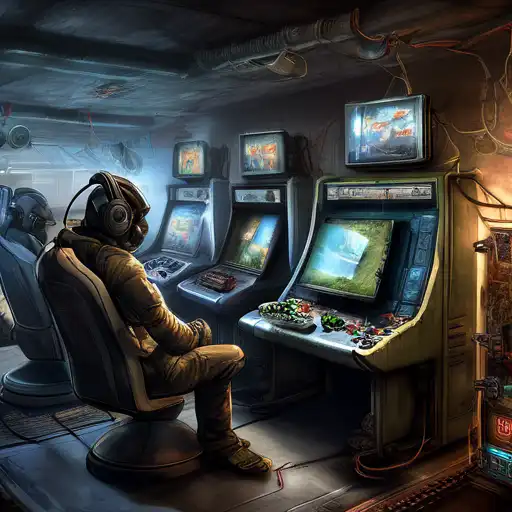The Dawn of Gaming Technology
The evolution of gaming technology is a fascinating journey that mirrors the advancements in computing and digital entertainment. From the simple, pixelated games of the 1970s to the immersive, hyper-realistic experiences of today, gaming technology has undergone a remarkable transformation. This article explores the key milestones in the evolution of gaming technology and how it has shaped the way we play and interact with digital worlds.
From Pixels to Virtual Reality
The early days of gaming were defined by simple graphics and limited gameplay. Games like Pong and Space Invaders laid the foundation for what would become a multi-billion dollar industry. As technology advanced, so did the complexity and appeal of video games. The introduction of 3D graphics in the 1990s marked a significant leap forward, enabling developers to create more immersive and visually stunning games.
The Rise of Online Gaming
Another pivotal moment in the evolution of gaming technology was the advent of online gaming. This innovation transformed gaming from a solitary or local multiplayer experience into a global phenomenon. Players could now connect with others around the world, leading to the rise of massive multiplayer online games (MMOs) and esports. The social aspect of gaming became as important as the games themselves, fostering communities and competitions on an unprecedented scale.
Mobile Gaming: Gaming on the Go
The proliferation of smartphones and tablets has made gaming more accessible than ever. Mobile gaming has introduced a new demographic to video games, with titles like Angry Birds and Candy Crush Saga becoming household names. The convenience of mobile gaming, combined with the continuous improvement in mobile hardware, has solidified its place in the gaming ecosystem.
The Future of Gaming Technology
Looking ahead, the future of gaming technology is brimming with possibilities. Virtual reality (VR) and augmented reality (AR) are set to redefine the boundaries of gaming, offering even more immersive experiences. Meanwhile, advancements in artificial intelligence (AI) promise to create more dynamic and responsive game worlds. As gaming technology continues to evolve, one thing is certain: the best is yet to come.
The evolution of gaming technology is not just a testament to human ingenuity but also a reflection of our desire for new forms of entertainment and interaction. From the arcade cabinets of the 20th century to the VR headsets of today, gaming technology has come a long way, and its journey is far from over.
Key Takeaways
- The evolution of gaming technology has been driven by advancements in computing and digital entertainment.
- Online gaming has transformed the industry, enabling global connectivity and the rise of esports.
- Mobile gaming has made video games more accessible, introducing a wider audience to the world of gaming.
- Emerging technologies like VR, AR, and AI are set to shape the future of gaming, offering unprecedented levels of immersion and interactivity.
As we look to the future, it's clear that gaming technology will continue to evolve, bringing new experiences and opportunities for players around the world. The journey of gaming technology is a testament to the endless possibilities of human creativity and technological innovation.
